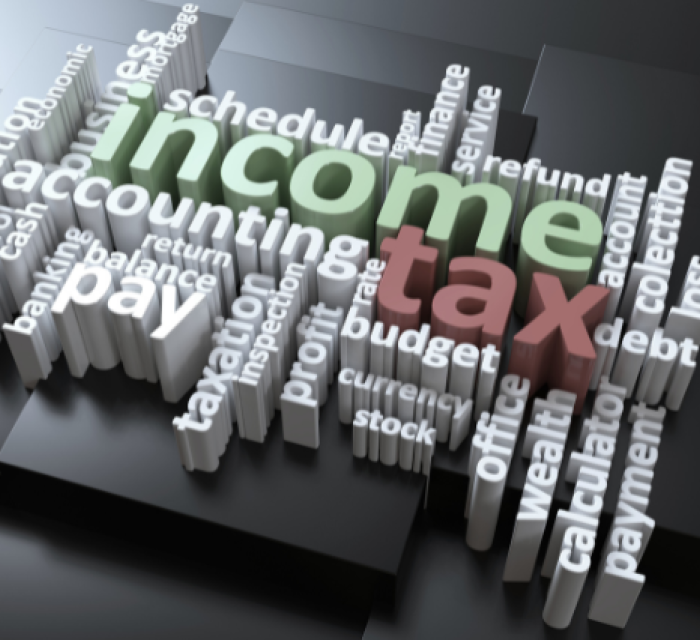Government legislative proposal on consolidation of public finances
On Thursday, 3 October 2024, the National Council of the Slovak Republic approved the consolidation package, including the Act on a new tax on financial transactions. Learn what changes will ultimately take place in the tax area. You can also download a summary of the changes in our infomaterial.
Approximately after one year, the Government of the Slovak Republic has introduced another package of proposed legislation aimed at improving public finances. Most of the changes will take effect from 1 January 2025.
We will update the article continuously based on developments in the National Council of the Slovak Republic.
Note: The article has been updated as of 27.9.2024. The bill related to the consolidation of public finances has been passed to the second reading.
Note: The article has been updated in accordance with the final version of the Act related to the consolidation of public finances. Both bills (the Act related to further improvement of the state of public finances and the Act on tax on financial transactions) have been passed by the National Council of the Slovak Republic on 3 October 2024.
Download a short infomaterial in PDF, which contains a summary of the proposed changes.
Income Tax
In addition to consolidating public finances, the aim is also to support small businesses and sole traders. Therefore, it is proposed to increase the threshold of taxable income, up to which a reduced tax rate will be applied to entrepreneurs from 1 January 2025. The threshold should increase from the current EUR 60,000 to EUR 100,000. The reduced tax rate for entrepreneurs has so far been the same 15% regardless of whether they are individuals or legal entities. However, the tax rate is now proposed to be reduced to 10% for small legal entities. The basic corporate tax rate remains at 21% and, in addition, a new tax rate of 24% should be introduced for legal entities whose taxable income exceeds EUR 5 millions.
The tax rate should also be changed for the payment of profit shares (dividends) to individuals. The tax rate on such income was increased from 7% to 10% starting 1 January this year, just by the first consolidation package. However, after just one year, it is proposed to return to the original 7%, which will apply to profit shares declared for tax periods beginning on 1 January 2025 at the earliest. The same applies to liquidation balances and settlement shares.
The conditions for claiming the child tax bonus should also change significantly. The entitlement to the bonus should only arise until the dependent child turns 18. The amount of the bonus will continue to depend on the income of the parents. However, the percentage limits of the maximum possible amount of the tax bonus depending on the parent's tax base and the number of children will increase across the spectrum by 9 percentage points. A new limit will also be introduced, under which the tax bonus for high-income parents (with a tax base exceeding 1.5 times the annual average wage in Slovakia from two years ago) will gradually decrease by an amount equal to 1/10 of the difference between the parent's tax base and 1.5 times the average wage. The final change is the extension of the condition that determines which taxpayers are ineligible for this tax bonus. Previously, Slovak tax non-residents had to have at least 90% of their taxable income sourced in Slovakia to claim the child tax bonus. Under the new rules, this condition will apply to all taxpayers, including Slovak tax residents.
While the parental pension is removed from social insurance, the Income Tax Act adds the possibility for individuals to contribute 2% of the tax paid for each of their parents who are pension recipients. The amount allocated must be at least EUR 3, and the payment will be handled by the Social Insurance Agency. Until now, this mechanism has been widely used to support non-profit organizations, civic associations, foundations, and similar entities.
The government is also proposing changes aimed at promoting electric vehicles. For example, if an employee uses a BEV (battery electric vehicle) or PHEV (plug-in hybrid vehicle) provided by their employer for private purposes, the non-cash benefit will amount to only 0.5% of the vehicle’s acquisition price. For conventional vehicles with internal combustion engines, employees will continue to be taxed on 1% of the vehicle’s acquisition price. Another form of support for electric vehicles is the introduction of a new method for claiming fuel expenses. When charging at home, expenses for consumed electricity can be claimed based on average electricity prices and the vehicle's consumption. The amendment will further support not only electric cars but also other electric means of transport. Electric bicycles and scooters will be included in depreciation group 0 with a depreciation period of 2 years, and trolleybuses and electric buses will be moved from the second to the first depreciation group (reducing the depreciation period from 6 to 4 years). The change in depreciation group will also apply to assets acquired before 1 January 2025, although previously claimed tax depreciation will not be adjusted retroactively.
With regard to the support for deduction of investment expenses pursuant to Article 30e of the Income Tax Act, the proposed amendment also extends the investment period for which an investment plan is prepared from the current 4 years (2022-2025) to 6 years (2022-2027). The extension will apply not only to new investment plans but also to old ones.
Another new provision is that the minimum tax (the newly introduced tax license) will not apply to registered social businesses.
Value Added Tax
The amendment will also affect value added tax (VAT). After ten years, the basic VAT rate, which is currently 20%, should change, as well as the reduced rate of 10%. The new basic VAT rate should be increased to 23%, while the reduced tax rate is proposed to be as high as 19%. The reduced tax rate of 19% will apply mainly to a wider range of food items, such as certain fish, water, including mineral and flavored water, vinegar or salt, electricity, but also to beverages provided as part of restaurant and catering services (with the exception of the provision of alcoholic beverages, where the basic rate will apply).
The second reduced tax rate of 5% will remain unchanged, but the range of goods and services to which it applies will change. From 1 January 2025, it is expected to apply to essential food items (such as meat, certain fish, milk and dairy products, vegetables, legumes, fruit, and bread), as well as to medicines and medical devices, educational publications (i.e., textbooks), but eventually also to common publications such as books, newspapers or magazines. For services, it will apply to food provided in the scope of restaurant and catering services, to accommodation services, to the operation of sports facilities and to the services of fitness centers. It should also now apply to goods and services supplied by social businesses in the framework of social economy activities.
Other changes
Changes should also occur, for example, in the area of social security. While the maximum assessment base for paying social insurance is currently at the level of 7 times the average monthly wage in Slovakia from two years ago, from 1 January 2025 this limit should increase to 11 times.
Adjustments are also planned for a special levy on business in regulated industries, while the production of petroleum products and its chemical processing should also be considered a regulated industry. For regulated entities operating in this area, a levy rate of 0.025 is proposed. Originally, the rate of the levy for a regulated person active in the energy sector was also to be increased to 0.025, but this proposal was not approved and the rate of the special levy for the energy sector remains unchanged. In the field of electronic communications, which includes mobile operators, the rate is increased to 0.01576. However, the increase in the electronic communications sector is expected to be temporary, with the levy rate reverting to the current rate of 0.00363 as from 1 January 2040.
In addition, the Act on the Solidarity Contribution from Activities in the Oil, Gas, Coal and Refineries sectors specifies the entry criteria for the determination of obliged entities, the calculation of the contribution and the use of contribution.
Financial Transactions Tax
A separate bill should also introduce a new tax on financial transactions from 1 January 2025, which will affect payment services provided by payment service providers.
The tax base will be the amount of funds withdrawn from the taxpayer's account, with rates ranging from 0.40% to 0.80% for financial transactions and EUR 2 for a payment card. However, in some cases, there are also maximum limits on the amount of tax per financial transaction.
You can read more about this new tax soon in our separate article.





